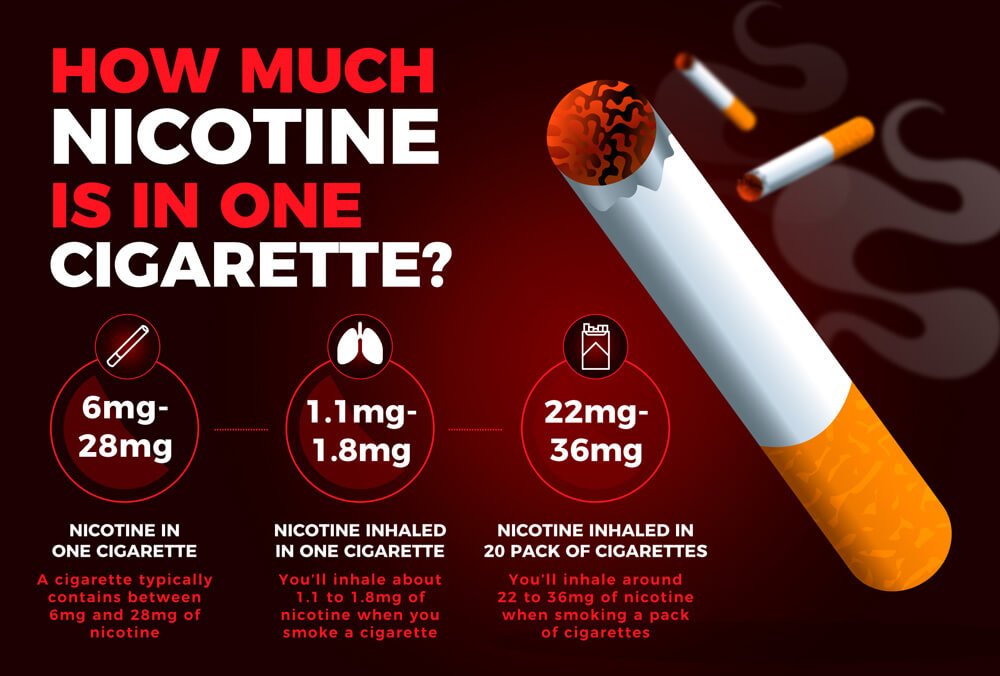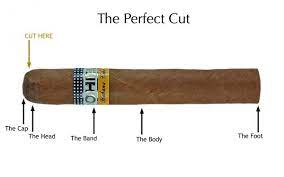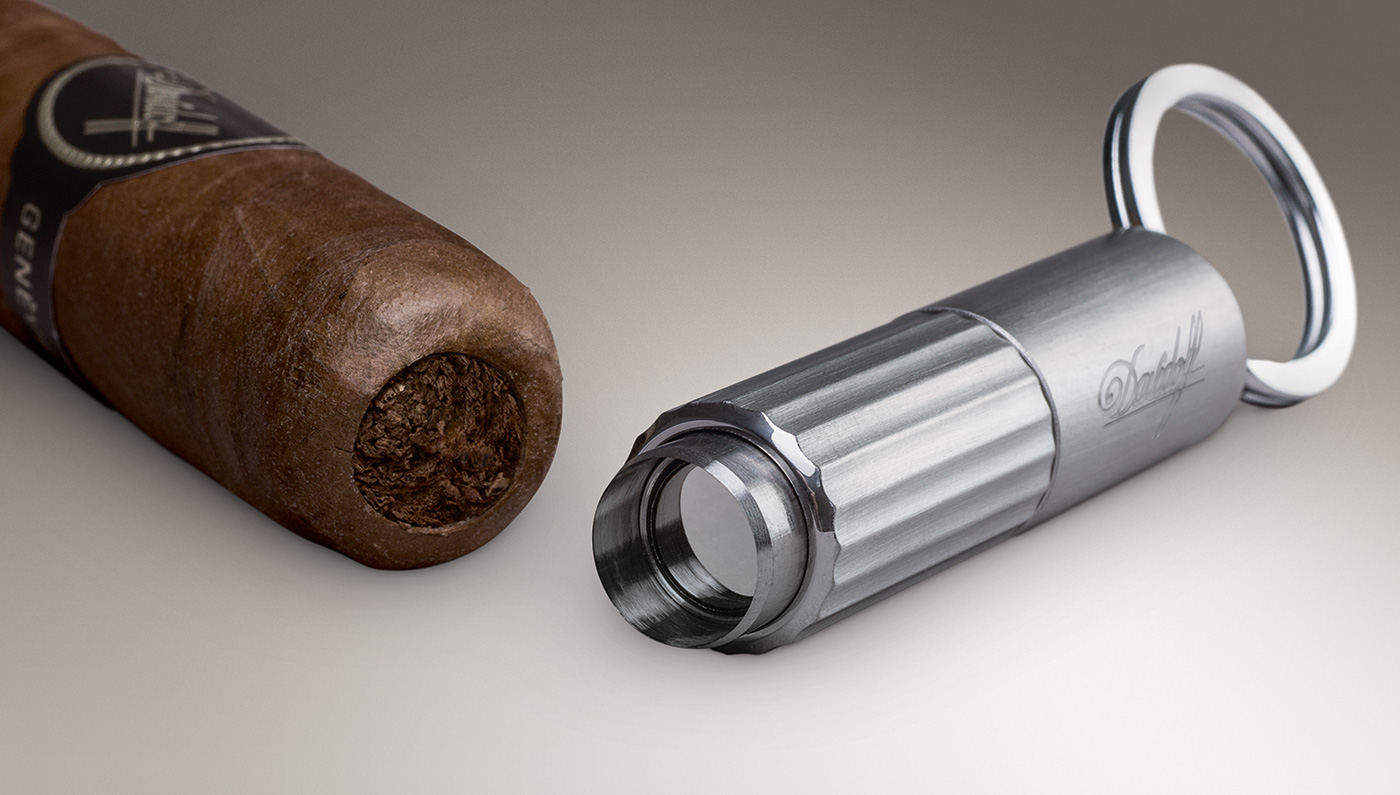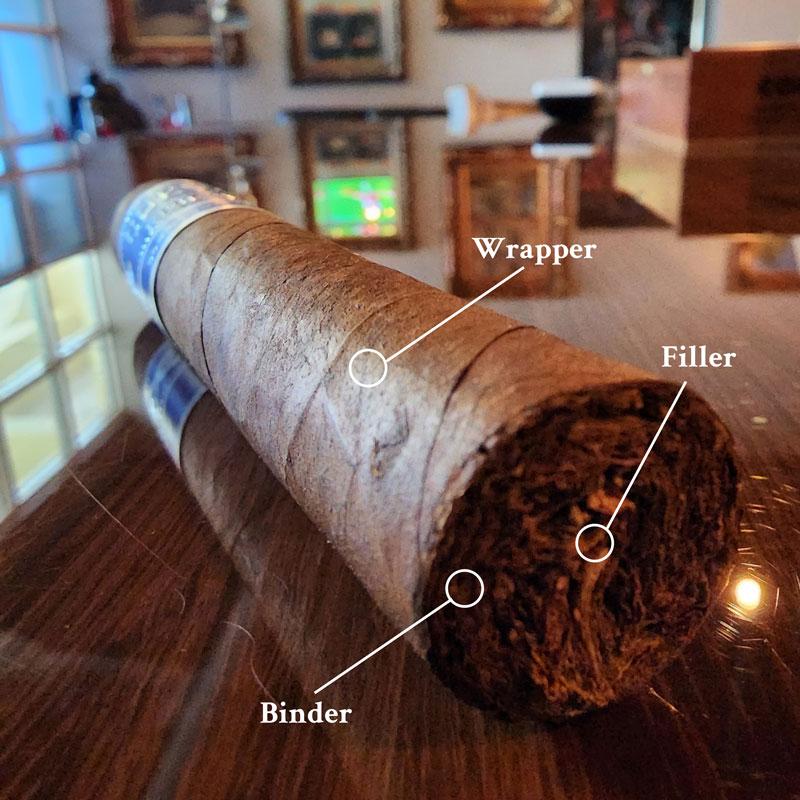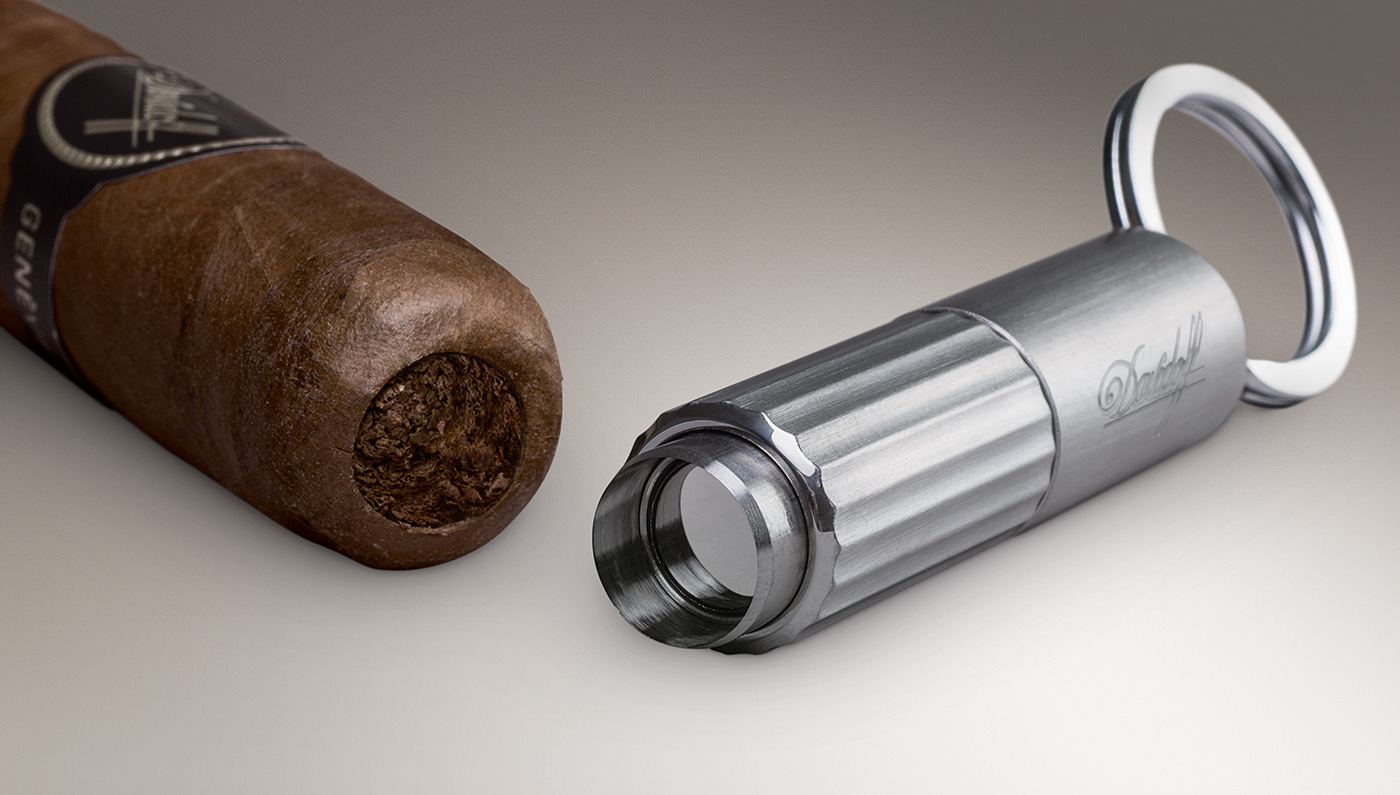1 How Many Cigarettes are Equivalent to a Single Cigar equals?
Have you ever wondered how many cigarettes are equivalent to smoking just one cigar? Well, the answer might surprise you! While cigars and cigarettes are both tobacco products, their composition, size, and smoking process differ greatly. As a result, it is impossible to provide a straightforward conversion rate between the two.
Unlike cigarettes, cigars are made of whole tobacco leaves that are tightly rolled and come in various sizes and shapes. Due to their larger size, cigars typically contain more tobacco and are therefore expected to deliver a higher concentration of nicotine and harmful chemicals compared to cigarettes.
The time it takes to smoke a cigar is significantly longer than smoking a cigarette. On average, smoking a cigar can take anywhere from 30 minutes to a couple of hours, depending on its size. This prolonged smoking time exposes the smoker to the tobacco’s harmful substances for an extended period.
When it comes to nicotine, cigars often contain more nicotine than cigarettes. While the exact amount can vary depending on the size and type of cigar, it is not uncommon for a single cigar to contain as much nicotine as an entire pack of cigarettes. However, it’s essential to note that nicotine content alone does not determine the overall health risks associated with smoking.
In conclusion, it is challenging to determine an exact equivalence between cigars and cigarettes due to their differing compositions, sizes, and smoking durations. Nevertheless, it is crucial to recognize that cigars can have a higher concentration of both nicotine and harmful chemicals compared to cigarettes. Ultimately, quitting smoking altogether is the best way to reduce health risks and improve overall well-being.
Cigar vs Cigarette: What’s the Difference?
While both cigars and cigarettes are tobacco products, there are several key differences between the two.
1. Size and Shape
Cigars are typically larger and thicker than cigarettes. They come in various shapes, such as robusto, Churchill, and torpedo. On the other hand, cigarettes are smaller and thinner, with a cylindrical shape.
2. Tobacco Content
Cigars are made entirely of tobacco leaves, including the filler, binder, and wrapper. The tobacco used in cigars is typically fermented and aged, resulting in a more complex flavor profile. Cigarettes, on the other hand, typically contain a blend of tobacco leaves combined with other additives such as fillers and chemicals.
3. Smoking Time
Due to their larger size and thicker construction, cigars take longer to smoke than cigarettes. A cigar can last anywhere from 30 minutes to several hours, depending on its size. Cigarettes, on the other hand, are designed to be smoked within a few minutes.
4. Inhalation
When smoking a cigar, the smoke is not meant to be inhaled into the lungs. Instead, the smoker draws the smoke into the mouth and enjoys the flavors before exhaling. On the contrary, cigarette smoke is typically inhaled into the lungs for nicotine absorption.
5. Nicotine and Tar Levels
Cigars generally contain higher levels of nicotine and tar compared to cigarettes. This is due to the larger quantity of tobacco used in cigars and the fact that cigar smoke is not meant to be inhaled, resulting in higher concentrations of these substances in the mouth.
6. Social Connotation
Cigars have often been associated with celebrations, relaxation, and luxury. They are often seen as a status symbol and are commonly enjoyed on special occasions. Cigarettes, on the other hand, are more commonly associated with addiction and are often consumed on a regular basis.
| Cigar | Cigarette |
|---|---|
| Typically larger and thicker | Smaller and thinner |
| 100% tobacco leaves | Tobacco blend with additives |
| Longer smoking time | Short smoking time |
| Smoke not inhaled into lungs | Smoke inhaled into lungs |
| Higher nicotine and tar levels | Lower nicotine and tar levels |
| Associated with celebration and luxury | Associated with addiction |
Overall, while both cigars and cigarettes are tobacco products, they differ significantly in terms of size, tobacco content, smoking technique, and social connotation. It’s important to note that both cigars and cigarettes pose health risks due to the inhalation of tobacco smoke.
Understanding the Composition of Cigars and Cigarettes
When it comes to smoking, it is important to understand the composition of cigars and cigarettes. Both cigars and cigarettes contain tobacco, but they are different in terms of composition and how they are made.
Cigars
Cigars are made from tobacco leaves that are fermented and then wrapped in tobacco leaf wrappers. The tobacco used in cigars is typically air-cured, which gives it a different flavor compared to cigarettes. Cigars also have a higher nicotine content compared to cigarettes.
One cigar can contain a large quantity of tobacco, sometimes equivalent to a pack of cigarettes. The tobacco in cigars is typically longer and thicker, resulting in a slower burn and a longer smoking time.
Cigarettes
Cigarettes, on the other hand, are made by tightly rolling chopped tobacco in a paper wrapper. The tobacco used in cigarettes is often flue-cured, which gives it a different taste compared to cigars. Cigarettes usually contain additives and chemicals, such as nicotine, that enhance the smoking experience.
Unlike cigars, cigarettes are usually smaller and thinner, and they burn much faster. A pack of cigarettes typically contains 20 individual cigarettes.
It is worth noting that cigars and cigarettes are also smoked differently. Cigars are often enjoyed for their complex flavors and are meant to be smoked slowly, while cigarettes are typically smoked more quickly.
- Cigars contain fermented tobacco
- Cigars are wrapped in tobacco leaf wrappers
- Cigars have a higher nicotine content
- Cigars have a slower burn and longer smoking time
- Cigarettes contain tightly rolled chopped tobacco
- Cigarettes are wrapped in paper wrappers
- Cigarettes often contain additives and chemicals
- Cigarettes have a faster burn and shorter smoking time
In conclusion, understanding the composition of cigars and cigarettes is important for smokers and non-smokers alike. While both contain tobacco, cigars and cigarettes differ in terms of their composition, flavor, smoking time, and nicotine content. It is essential to make informed choices when it comes to smoking and be aware of the potential health risks associated with smoking.
Finding the Answer: Comparing Nicotine Content
When trying to determine the nicotine content of a cigar compared to cigarettes, it is important to understand that cigars and cigarettes differ in their composition and smoking habits. However, it is possible to make some general comparisons based on available data.
Differences in Composition
Cigars are typically larger and contain more tobacco than cigarettes. They are made from whole tobacco leaves and may not have filters. In contrast, cigarettes are smaller and contain a blend of tobacco, often with added chemicals. They have filters that can reduce the amount of nicotine and other substances inhaled.
Nicotine Content Comparison
Due to the differences in composition, cigars generally contain more nicotine than cigarettes. According to the Centers for Disease Control and Prevention (CDC), a typical cigarette contains around 1 mg of nicotine. However, the nicotine content of cigars can vary significantly depending on factors such as size and tobacco type.
| Cigar Type | Nicotine Content |
|---|---|
| Small Cigar | 1-2 mg |
| Medium Cigar | 3-5 mg |
| Large Cigar | 5-10 mg |
It is important to note that these are approximate values and the actual nicotine content may vary from product to product. Moreover, the way cigars are smoked, usually for a longer duration and without inhaling the smoke deeply, means that less nicotine is absorbed by the body compared to smoking cigarettes.
Ultimately, it is best to consult product labels and consider individual smoking habits to get a better understanding of the nicotine content in cigars compared to cigarettes.
Health Risks of Smoking Cigars and Cigarettes
Smoking cigars and cigarettes poses serious health risks that can lead to various diseases and medical conditions. Despite being different in size and composition, both cigars and cigarettes contain harmful substances that can cause damage to the body.
Lung Cancer: Both cigars and cigarettes are known to increase the risk of developing lung cancer. The smoke from these tobacco products contains carcinogens that can lead to the growth of cancerous cells in the lungs.
Cardiovascular Diseases: Smoking cigars and cigarettes is a major risk factor for cardiovascular diseases such as heart attacks and strokes. The chemicals present in tobacco smoke can damage the blood vessels and increase the risk of blood clots, leading to these serious conditions.
Respiratory Problems: Regular smoking of cigars and cigarettes can cause respiratory problems such as chronic bronchitis and emphysema. The smoke irritates and damages the airways, making breathing difficult and leading to long-term respiratory issues.
Oral and Throat Cancer: Smoking cigars and cigarettes also increases the risk of developing oral and throat cancer. The smoke that is inhaled when smoking these tobacco products can damage the tissues in the mouth and throat, leading to the growth of cancerous cells.
Other Health Risks: Smoking cigars and cigarettes can also contribute to other health problems such as gum disease, tooth loss, and reduced fertility in both men and women. Additionally, secondhand smoke from these tobacco products can also pose health risks to non-smokers, increasing their risk of developing respiratory and cardiovascular diseases.
To protect your health, it is important to avoid smoking cigars and cigarettes altogether. If you are a smoker, quitting smoking is the best thing you can do for your health. Seek support from healthcare professionals or support groups to help you quit and improve your overall well-being.
Measuring Smoke Exposure: Cigars vs Cigarettes
When it comes to measuring smoke exposure, it is important to understand the differences between cigars and cigarettes. While both products involve the combustion of tobacco and the inhalation of smoke, cigars and cigarettes differ significantly in terms of size, tobacco content, and smoking habits.
Cigars are typically larger than cigarettes and contain more tobacco. This means that cigars generally produce more smoke and deliver higher levels of nicotine and other harmful substances. In fact, cigars can contain as much tobacco as an entire pack of cigarettes, resulting in a significantly higher level of smoke exposure.
However, it is important to note that cigars are often not smoked in the same way as cigarettes. Cigar smokers typically take longer and fewer puffs, and the smoke is often not inhaled deeply into the lungs. This smoking behavior can result in a lower overall level of smoke exposure compared to cigarette smoking.
When measuring smoke exposure, it is important to consider not only the quantity of smoke but also the depth of inhalation and the frequency of smoking. For example, a single cigarette may contain less tobacco than a cigar, but the cumulative exposure from smoking multiple cigarettes throughout the day may still result in higher overall smoke exposure than smoking a single cigar.
Additionally, secondhand smoke can also contribute to smoke exposure. Both cigars and cigarettes produce secondhand smoke, which can be harmful to those who are exposed to it. Therefore, it is important to consider not only personal smoking habits but also the presence of secondhand smoke when measuring smoke exposure.
In conclusion, measuring smoke exposure requires considering various factors, such as the size of the tobacco product, the smoking behavior, and the presence of secondhand smoke. While cigars may contain more tobacco and deliver higher levels of smoke, the overall smoke exposure can vary depending on individual smoking habits and the cumulative effect of smoking multiple cigarettes. Understanding these differences is essential for assessing the health risks associated with cigar and cigarette smoking.
Frequency of Smoking: Cigar vs Cigarette Smokers
When it comes to the frequency of smoking, there is a noticeable difference between cigar and cigarette smokers. While both types of smokers engage in the act of smoking, their habits and patterns differ.
Cigarette smokers tend to smoke more frequently than cigar smokers. This is mainly due to the fact that cigarettes are smaller and more convenient to carry and smoke. Cigarettes are often consumed on a daily basis, with smokers taking multiple breaks throughout the day to light up.
On the other hand, cigar smokers tend to smoke less frequently. Cigars are larger and require a longer smoking time, making them more of an occasional indulgence. Unlike cigarette smokers, cigar smokers may only smoke a few times a week or even once a month. Cigars are often enjoyed during special occasions or as a form of relaxation.
Another factor that contributes to the difference in smoking frequency between cigar and cigarette smokers is the overall smoking experience. Cigarettes are typically smoked for the nicotine rush and quick satisfaction, while cigars are savored for their aroma, flavor, and the overall experience of smoking them.
It is important to note that both cigar and cigarette smoking carry health risks. Regardless of the frequency, smoking in any form can have detrimental effects on a person’s health. If you are a smoker, it is always advisable to consider quitting or seeking professional help to reduce the harm caused by smoking.
In conclusion, the frequency of smoking varies between cigar and cigarette smokers. Cigarette smokers tend to smoke more frequently, while cigar smokers indulge in their habit less often. Understanding these differences can provide insight into the smoking habits of individuals and the associated health risks.
Factors to Consider: Size and Type of Cigars and Cigarettes
When comparing cigars and cigarettes, it is important to consider the size and type of each. Both cigars and cigarettes are tobacco products, but they differ in the way they are manufactured, intended use, and overall smoking experience.
The size of a cigar can vary significantly compared to a cigarette. Cigars are typically larger and more time-consuming to smoke than cigarettes. They often contain more tobacco and are rolled with a tobacco leaf wrapper. Cigars come in different sizes, such as corona, Churchill, and robusto, with varying lengths and ring gauges. The larger size and amount of tobacco in cigars can lead to a longer smoking time compared to cigarettes.
Cigar types also play a role in comparing them to cigarettes. Cigars are categorized based on their manufacturing process, composition, and flavor profile. Some common types include premium cigars, machine-made cigars, flavored cigars, and cigarillos. Premium cigars are typically handmade using high-quality tobacco leaves and are known for their complex flavors. Machine-made cigars, on the other hand, are mass-produced and often have a milder taste. Flavored cigars and cigarillos may have additives or flavorings to enhance the smoking experience.
Cigarettes, on the other hand, are smaller in size compared to cigars. They typically contain less tobacco and are wrapped in paper. Cigarette sizes are generally consistent, with variations in length and filter options. The smaller size of cigarettes allows for a quicker smoking experience compared to cigars.
The type of cigarette can also impact the smoking experience. Cigarettes come in various types, including regular, light, and menthol. Regular cigarettes have a higher amount of nicotine and are preferred by those seeking a stronger tobacco taste. Light cigarettes have lower levels of tar and nicotine, making them a milder option. Menthol cigarettes have menthol flavorings, which can provide a cooling sensation and a different taste.
Overall, when comparing cigars to cigarettes, the size and type are important factors to consider. The larger size and variety of cigar types offer a different smoking experience compared to the smaller and more consistent options of cigarettes. Whether you prefer a longer, more leisurely smoking session with a premium cigar or a quick smoke with a regular cigarette, it’s important to understand the size and type differences between these tobacco products.
Q&A: 1 cigar equals how many cigarettes
Do cigars cause cancer?
Yes, cigars can cause cancer. Cigar smoke contains over 70 known cancer-causing substances, including tar and carbon monoxide.
What are the other health effects of cigar smoking?
Cigar smoking can cause a number of other health problems, including:
Heart disease
Stroke
Lung disease
Gum disease
Tooth loss
Is cigar smoking as harmful as cigarette smoking?
Cigar smoking is not as harmful as cigarette smoking, but it is still harmful to your health. Cigar smokers have an increased risk of developing cancer, heart disease, and other health problems.
What are the risks of secondhand cigar smoke?
Secondhand cigar smoke is also harmful to your health. It can cause a number of health problems, including:
Lung cancer
Heart disease
Stroke
Asthma
Ear infections
Who is most at risk for the health effects of cigar smoking?
People who smoke cigars are most at risk for the health effects of cigar smoking. However, secondhand cigar smoke can also be harmful to your health.
What are some tips for quitting cigar smoking?
There are a number of tips for quitting cigar smoking, including:
Set a quit date.
Tell your friends and family that you are quitting.
Get rid of all of your cigars and cigar accessories.
Find a support group or quit-smoking program.
Talk to your doctor about quitting.
What are some resources for quitting cigar smoking?
There are a number of resources for quitting cigar smoking, including:
The National Cancer Institute’s SmokefreeTXT program
The American Lung Association’s Freedom From Smoking program
The Centers for Disease Control and Prevention’s SmokefreeTXT program
What are some of the benefits of quitting cigar smoking?
There are a number of benefits of quitting cigar smoking, including:
Reduced risk of cancer
Reduced risk of heart disease
Reduced risk of stroke
Improved lung function
Improved sense of taste and smell
Increased energy
More money in your pocket
What are some of the challenges of quitting cigar smoking?
There are a number of challenges of quitting cigar smoking, including:
Nicotine withdrawal
Cravings
Stress
Social triggers
How can I overcome the challenges of quitting cigar smoking?
There are a number of ways to overcome the challenges of quitting cigar smoking, including:
Get support from your friends and family.
Find a quit-smoking program or support group.
Talk to your doctor about quitting.
Use nicotine replacement therapy or other medications to help with withdrawal symptoms.
Find healthy ways to cope with stress.
Avoid social triggers that make you want to smoke.
What is the difference between a pipe and a cigar?
A pipe is a device used to smoke tobacco. It consists of a bowl, a stem, and a mouthpiece. A cigar is a type of rolled tobacco that is smoked.
Do people inhale cigar smoke?
Some people inhale cigar smoke, while others do not. Inhaling cigar smoke increases the risk of developing cancer and other health problems.
What is the risk of cancer from smoking one cigar?
The risk of cancer from smoking one cigar is small, but it is still a risk. Cigar smoke contains over 70 known cancer-causing substances.
What is a cigar?
A cigar is a type of tobacco product that is made from tobacco leaves that are rolled and wrapped in a tobacco leaf.
Is cigar smoking like cigarette smoking?
Cigar smoking is similar to cigarette smoking in many ways. Both cigars and cigarettes contain nicotine and other harmful chemicals.
What is cigar use?
Cigar use is the act of smoking cigars. Cigar use is associated with a number of health risks, including cancer, heart disease, and stroke.
What is a type of tobacco product that is made from tobacco leaves that are rolled and wrapped in a tobacco leaf?
A cigar is a type of tobacco product that is made from tobacco leaves that are rolled and wrapped in a tobacco leaf.
What is tobacco control?
Tobacco control is the practice of reducing the use of tobacco products. Tobacco control includes a variety of strategies, such as education, taxation, and regulation.
What is tobacco consumption?
Tobacco consumption is the use of tobacco products. Tobacco consumption is a major public health problem.
What is wrapped in leaf tobacco?
A cigar is wrapped in leaf tobacco.

